Pawpaw : SUSQUEHANNA® 90-150cm (3-5') 3 gallon pot
$114.95
Neil Peterson says if he had to pick a personal favorite from among his patented varieties, this would be the one! For starters, it consistently produces the largest fruit, often 500grams or more, and only 3% seed by weight. With a relatively thick skin, Susquehanna® is less fragile than most, which is an obvious bonus for harvesting and handling, and translates into longer storage life too. Blake Cothron describes the interior thus-'has a firm, luscious, buttery, avocado-like texture, and a rich honey-like caramel sweetness. Too intensely sweet and strong for some, the favorite of others.' The slower-growing tree is not as vigorous as some, but has particularly attractive, healthy-looking foliage.
NEEDS A POLLENIZER | ZONE 5 | HARVEST : LATE OCT.
Only logged in customers who have purchased this product may leave a review.
Growing Tips
It is common knowledge that blueberries require acidic (low pH) soil. In many areas of Canada the soil is naturally not acidic enough (pH too high). Here we recommend our popular Blueberry Booster (see page 59). A number of other trees also prefer more acidic soil and will benefit from annual applications of Blueberry Booster. These include Chestnuts, Pawpaws and Persimmons.
Suggested Rate:
- When planting trees – 250g (1 cup) top dressed and lightly
raked in before soaking with water. - For established trees – 500g (2 cups) per 25mm (1") of tree
trunk diameter broadcast under tree in early spring.
In addition, another way to accommodate these 'special needs'
plants is to add vinegar or citric acid to their irrigation water.
(2.5 litres common white vinegar to a 20 litre bucket of water).
In most cases, we recommend planting bareroot fruit trees at their permanent site as soon as you get them. However, the trees in this section of the catalogue (Pawpaws, Persimmons and Jujubes) will often benefit from spending a few more years in a pot. Since these species do not take as well to bareroot handling, we receive them as very small trees in pots. We suggest you repot them in a 2 or 3 gallon container and grow them for several seasons. Pawpaws in particular, will appreciate this, as the tender young trees will prosper much more if you can keep them out of direct sunlight. This way you also have the option of overwintering them in your garage until they are bigger and stronger.
See Orchard Supplies for 3 gallon Root Trapper® Containers.
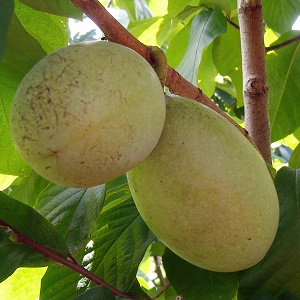
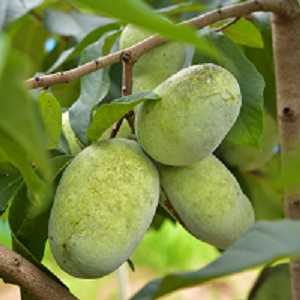
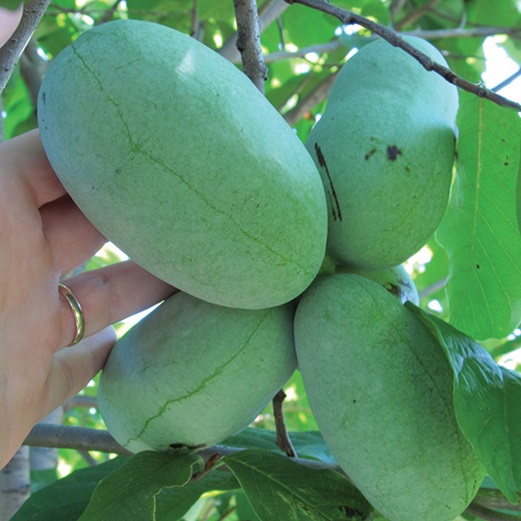
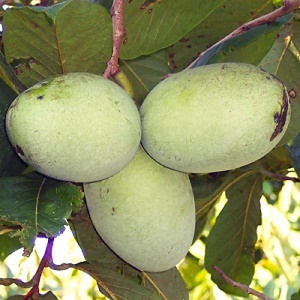
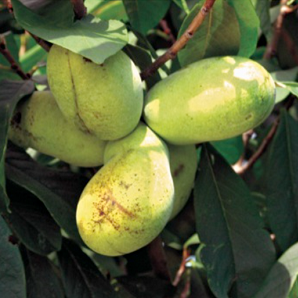
Reviews
There are no reviews yet.